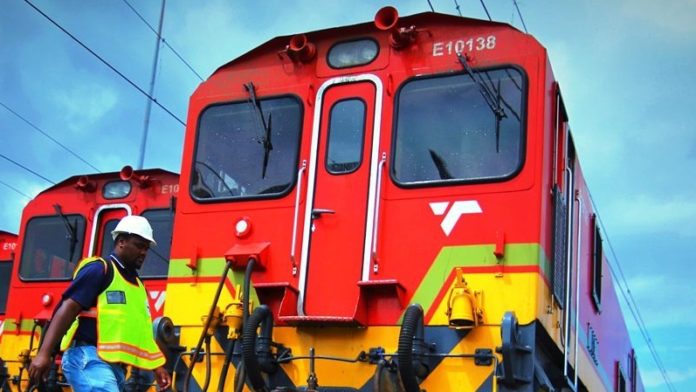
TRANSNET, South Africa’s state-owned freight and logistics company, is to review all recent train derailments as it sought to “identify trends” amid a declaration today that “things have to change”.
The company suffered a derailment of a loaded export coal train with 208 wagons bound for Richards Bay on Saturday (July 3), the second “significant” derailment since the beginning of the financial year in April. All in all, 30 wagons were derailed leaving the utility to operate a single line for “the next few days”, according to the Transnet statement.
Mining companies have complained of low rail utilisation this year. The most outspoken comments were made by the country’s largest coal producer, Exxaro Resources. In a market update on June 29, Exxaro said Transnet’s poor performance would result in its coal production for its 2021 financial year becoming seriously hampered.
Transnet Freight Rail (TFR), a division of Transnet, railed 24.3 million tons (Mt) to Richard Bay Coal Terminal (RBCT), the privately-owned export handling facility, from January to the end of May representing an annualised ‘tempo’ of 58Mt. This was well below the average of about 62Mt – 64Mt in the previous years.
Coal prices are surging, partly owing to reduced availability, but also as a result of improving global economic growth. South Africa’s benchmark API4, an export price “… will continue to gain momentum as supply wanes”, said Exxaro.
Transnet said the firm’s top brass visited the site of the derailment – at a place called at Dassieshoogte, near Vryheid – partly in an effort to “… create a sense of urgency towards identifying the root cause of this derailment”.
“Transnet is also reviewing all derailments experienced in recent months, to identify trends with respect to causes and contributing factors. What is clear to us is that things have to change,” it said.
Transnet also identified risks as it procured emergency assistance in fixing derailments which it said could be open to abuse internally and by suppliers. It would, therefore ‘in-source more of this work, relying on skills it had managed to preserve while reducing its reliance on external service providers.
“We will additionally be requiring proper certification of partners at our facilities. Not only must our partners be suitably qualified, but they must also be contractually accountable for non-performance. This should ensure a more transparent and accountable relationship between all the role players responsible for the success of these corridors,” it said.
Transnet said it would create more accountability by improving its management structures that would give more authority to leadership.











